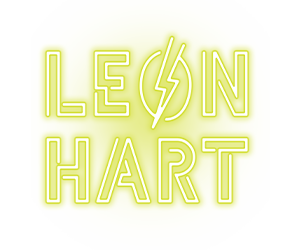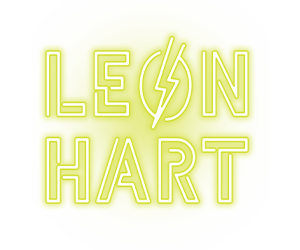In the fast-paced world of business and entrepreneurship, the ability to maintain high levels of concentration is not just a desirable skill - it's essential for success. As a driven professional, unlocking your concentration potential is the key to achieving peak cognitive function, enabling you to navigate challenges with clarity and precision. This article delves into practical focus strategies designed to enhance your mental acuity, ensuring that every moment of your work is characterized by effectiveness and efficiency. Embrace these methods, and step into a realm of heightened concentration where peak performance becomes your norm.
Understanding Concentration in the Cognitive Landscape
Concentration is the cornerstone of cognitive function. It's the ability to focus your mind on a single task, filtering out distractions and channeling your mental resources effectively. When concentration is optimized, your cognitive processes work in harmony, leading to enhanced problem-solving skills, faster information processing, and increased productivity. However, the constant demands of a high-pressure lifestyle can take a toll on your ability to focus. Recognizing the signs of waning concentration and understanding its impact on your cognitive performance is the first step in reclaiming your mental sharpness.
Focus Strategies for Enhanced Concentration
To elevate your concentration to its peak potential, it's crucial to adopt specific strategies that are grounded in scientific research and proven effectiveness.
Structured Work Blocks
The Pomodoro Technique, a time-management method developed in the late 1980s by Francesco Cirillo, revolutionizes how we approach work and concentration. It involves dividing your workday into 25-minute focused intervals, called Pomodoros, followed by five-minute breaks. After every four Pomodoros, a longer break of 15 to 30 minutes is recommended.
Scientifically, the technique aligns with the brain's natural rhythms of attention and rest, a cycle in which the human brain can focus optimally for around 90 to 120 minutes before needing a break. By working in shorter bursts, the Pomodoro Technique prevents cognitive overload, a common issue in sustained mental tasks. A study by the University of Illinois at Urbana-Champaign found that brief diversions from a task can dramatically improve one's ability to focus on that task for prolonged periods. By incorporating regular breaks, this technique keeps the mind fresh and concentration high.
This method is particularly effective. It instills a sense of urgency and a clear endpoint for each work interval, enhancing focus and productivity. The scheduled breaks also reduce the mental fatigue that can accumulate over long working hours, ensuring that your cognitive capabilities remain at their peak throughout the day.
Mindfulness and Meditation
Mindfulness and meditation have gained considerable attention in the scientific community for their role in enhancing concentration and cognitive function. Mindfulness, the practice of being fully present and engaged at the moment, has been shown to improve focus and reduce mind-wandering. Meditation, in particular, trains the brain to achieve sustained attention, with remarkable impacts on concentration levels.
A study published in the journal 'Psychological Science' revealed that just two weeks of mindfulness training can significantly improve reading comprehension, working memory capacity, and focus. Another research by the University of California, Davis, found that regular meditation increases the brain's ability to process information.
These practices are particularly beneficial for individuals in high-stress environments, as they also aid in stress reduction. Stress has been identified as a major barrier to optimal cognitive function. By incorporating mindfulness and meditation into your daily routine, you not only improve your concentration but also enhance overall mental well-being.
Physical Activity and Brain Health
The relationship between physical activity and cognitive function is well-established in scientific research. Regular exercise, particularly aerobic exercise, has been shown to have a profound impact on brain health and concentration. This strategy is particularly effective for those who spend long hours in sedentary positions. Regular movement not only breaks the monotony but also reinvigorates the brain, enhancing your ability to focus and process information.
A study by the University of British Columbia found that regular aerobic exercise, the kind that gets your heart and sweat glands pumping, appears to boost the size of the hippocampus, the brain area involved in verbal memory and learning. Exercise stimulates the release of chemicals in the brain, like endorphins and serotonin, which improve mood and reduce stress and anxiety - crucial factors affecting concentration.
For individuals with demanding work schedules, incorporating regular physical activity can be a game-changer. Even short bursts of exercise, such as a 10-minute walk, have been shown to increase mental alertness, energy, and mood. A 2018 study published in the journal 'Neuropsychologia' reported that just 10 minutes of aerobic exercise can significantly improve attention and concentration.
Optimized Sleep Patterns
Sleep is a critical component of cognitive function and concentration. During sleep, the brain undergoes various processes essential for memory consolidation and clearing out brain toxins, which can impede cognitive function if accumulated.
Numerous studies underscore the importance of quality sleep for cognitive performance. A study by the American Academy of Sleep Medicine found that sleep deprivation can have the same hazardous effects on cognitive function as alcohol intoxication. Moreover, a Harvard study revealed that people who get an adequate amount of sleep are better at learning and retaining information.
Additionally, optimizing your sleep environment and routine - such as reducing screen time before bed, maintaining a comfortable bedroom temperature, and having a relaxation routine - can improve sleep quality, thereby enhancing cognitive function and focus during waking hours.
Nutrition and Hydration
The brain is an energy-intensive organ, and its function is heavily influenced by nutritional intake. A balanced diet rich in omega-3 fatty acids, antioxidants, vitamins, and minerals is essential for maintaining optimal brain health and concentration.
Omega-3 fatty acids, found in fish, flaxseed, and walnuts, are particularly beneficial for cognitive function. A study published in the journal 'Neurology' showed that people with higher levels of omega-3 fatty acids had better blood flow in the brain and performed better on cognitive tests. Antioxidants, found in fruits and vegetables, combat oxidative stress which can impair brain function.
Hydration is equally important. The brain is about 75% water, and even mild dehydration can impair attention and memory. A study from the University of East London found that a glass of water could boost brain function by up to 30%, emphasizing the importance of staying hydrated for maintaining concentration.
Leveraging Peak Performance in Your Professional Life
Applying these focus strategies can lead to a significant improvement in your professional performance. With enhanced concentration, you're better equipped to tackle complex projects, make strategic decisions, and lead your team with confidence. The ability to maintain focus under pressure is a hallmark of successful entrepreneurs and workaholics. By adopting these methods, you position yourself at the forefront of your field, turning challenges into opportunities for growth and success.
In conclusion, unlocking your concentration potential is a transformative journey that empowers you to reach new heights in your professional and personal life. By embracing these focus strategies and committing to the continuous improvement of your cognitive function, you set the stage for a future characterized by peak performance and unparalleled success. Remember, concentration is not just a skill - it's the bedrock upon which the towers of your achievements are built. Harness it, and watch as the doors to limitless possibilities swing wide open.







